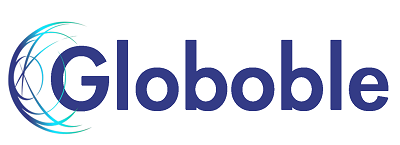The government’s move to impose stronger data privacy requirements on healthcare providers underlines the importance of protecting patient data. In addition to the HIPAA Act, HITECH Act promotes the use of electronic records of patient information and improvements to healthcare data security.
Data security should be a top priority for healthcare providers. Penalties up to $5 million can be imposed for violations of government regulations.
Furthermore, following rules isn’t enough. In order to maintain positive relationships with patients, healthcare providers need to understand the importance of data security. If patients know their data is safe with you, they will be more willing to speak up about their problems. Having this knowledge will allow you to diagnose and treat patients more effectively, potentially increasing patient satisfaction.
Strategies to Maintain Patient Information Privacy
The digital age has revolutionized patient confidentiality. Since online portals and gadgets are becoming more and more common, how can you be sure that your information is protected?
- Develop comprehensive procedures and confidentiality agreements.
The creation of a comprehensive and broad-based confidentiality agreement or policy ensures that all medical team members know exactly what is expected of them in any circumstance.
Confidentiality agreements are legal documents that specify what information cannot be discussed outside the workplace. It is the responsibility of each employee to read and sign this policy regularly. Your organization can also communicate this to patients regularly to demonstrate that it adheres to rigorous confidentiality policies.
- 2. Provide frequent training.
Knowing why policies and practices exist makes people more likely to follow them. Training of medical practitioners helps reinforce confidentiality requirements and refreshes employee responsibilities.
You can maximize the results of these training sessions by making them enjoyable and a fantastic opportunity to get to know your peers. By incorporating activities and a unique approach to the subject, you can make the training more engaging and, at the same time, provide an excellent experience for your employees.
- Provide secure platforms for the storage of all data.
The amount of patient data saved has skyrocketed with the advancement of healthcare and a growing population. In light of this, many clinics and practices may struggle to properly maintain this data, both in terms of where it can be stored and how it can be accessed. Digitally stored patient data protection is key, and high-level security must be maintained to resolve these systemic challenges. The best way to protect your data is to use platforms or cloud service providers that offer data security.This information should also be available only to the most important employees. A secure password that regulates access is another aspect worth thinking about and investing in.
- Disallowing mobile phones in patient areas
Mobile phones should be restricted from patient areas to prevent potential threats to patient confidentiality. In this way, no one will record or photograph private data or information, whether deliberately or accidentally. Imperial College Healthcare NHS Trust in London conducted a study that found that 65% of doctors used text messaging to keep in touch with colleagues about their patients, raising concerns about patient privacy.
Mallard Lake Detox Center is one of the best drug and alcohol treatment centers in Houston, Texas, and the protection of patient information is highly regarded. We guarantee our clients 100 % privacy by using purchased cloud service providers. Talk to our online team to learn more about our patient information protection strategies.













